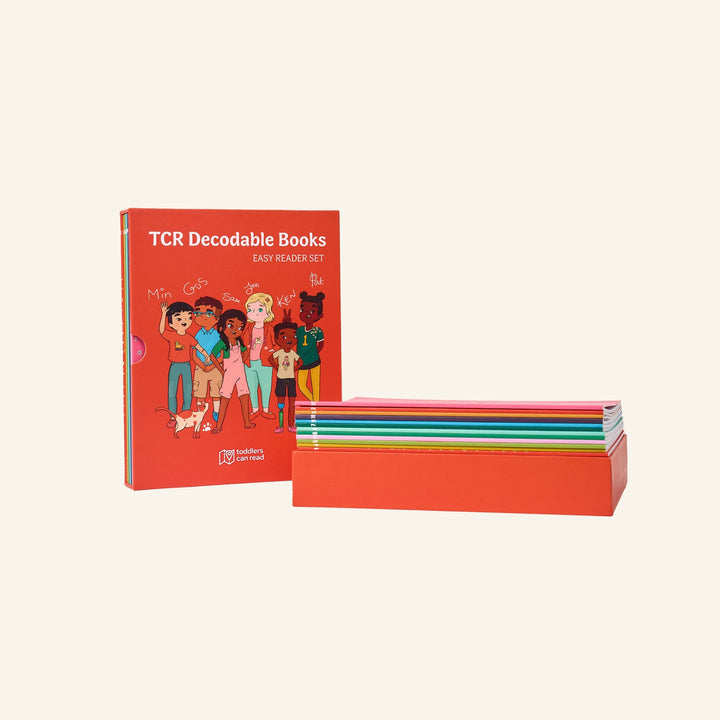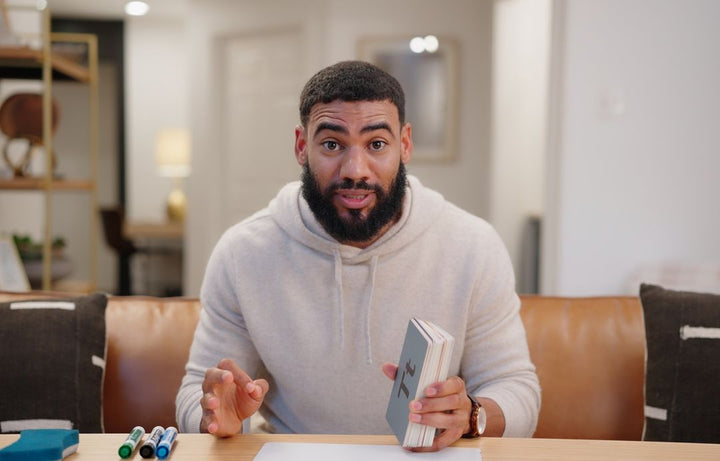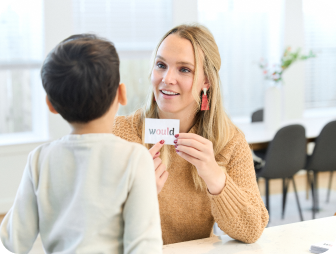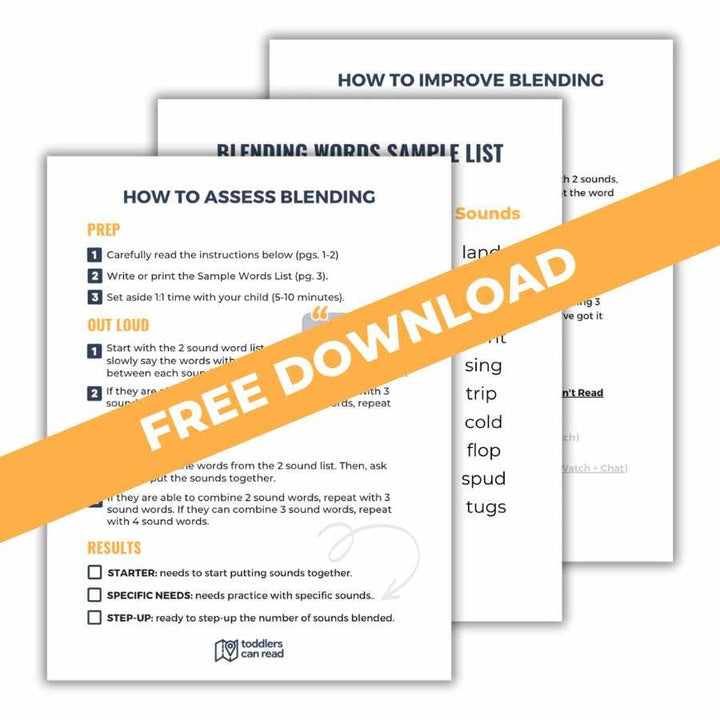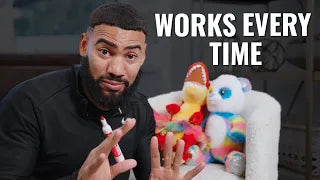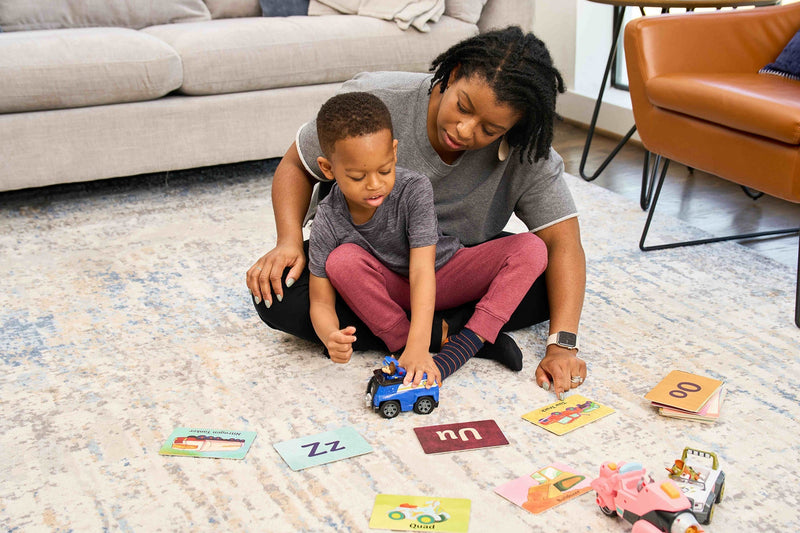I see it in my DM's and comments all the time: "Help! My child knows all of their sounds but still can't read!"
And I get it. It's confusing and frustrating. Your little one grasped the letter sounds so quickly and made such strong progress, and then BOOM. They hit a wall when it comes time to actually reading those sounds in words.
Your little one probably isn't too happy, either. Maybe they've started avoiding the learning time or refusing to read when you ask them to practice.
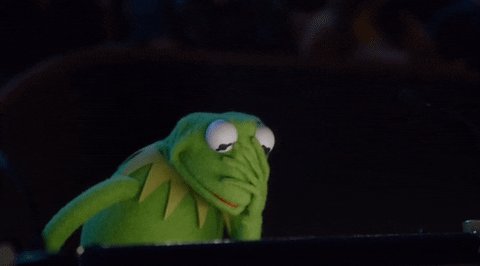
If this describes you and your little one, you're not alone. As a teacher, I taught kids who struggled to read. As a child, I was the kid who struggled to read. And now, I want to help you and your kid overcome this challenge as well.
So to help you figure out exactly why your child is struggling to read and what you need to do to help them improve: I've discovered 4 main reasons why children know their sounds but struggle to read words.
And I'm confident that by the time you finish reading, you'll have a better understanding of what issue you're dealing with and know where to find resources that'll help.
Reason #1: They don't actually know the letter sounds.
The most common reason I've seen kids struggling to blend is that they've moved on to blending before they've completely mastered the basic letter sounds. And this might seem harsh or judgmental, but it's true.
Because if we're not tracking our kid's progress closely, it can be very easy for it to seem like they know their sounds a lot better than they actually do.
Usually, there are two reasons why this happens:
- They've memorized the sounds in order. Suppose you show them in ABC order every time you quiz them on the sounds. In that case, it's hard to tell if they're actually identifying the sounds or if they've just memorized the order of the sounds.
- They only know the letters when they're singing a song. Think of it like this: just because I can sing a BTS song doesn't mean I know Korean. It does mean that I've memorized the words of the song. The same is true for our little ones and knowing the order of the alphabet.
Suppose your little one actually knows their sounds. In that case, they'll be able to tell you each sound (in random order) quickly, accurately, and consistently.
Meaning: They should be saying each of the sounds correctly right away.
For example, when they read a word, you don't want your child to spend all of their time and energy looking at each letter and trying to remember what sound it makes. Because when they spend all of their mental energy trying to figure out what the sound is, they won't have much left to figure out what the word is.
Still, trying to figure out how to assess their letter sounds? Here's a more detailed blog post on how to do exactly that.
Reason #2: They don't know the advanced letter combinations.
So what should you do if you've double-checked their letter sounds and they know all of them, but they still aren't reading?
Move on to some of those trickier 2 and 3-letter sounds. See if there's a gap there.
For example, if your kid hasn't learned that c and h the /ch/ sound when they're together, it's going to be really difficult (impossible) for them to read words like CHAT or CHIPS. Or if they don't know that the magic 'e' at the end of a word makes a vowel say its name, they won't be able to read words like MADE, SIDE, or CONE.
And even though it might seem harder to teach 2-letter sounds, it's not much different from teaching the 26 basic letter sounds; it just takes practice. I talk more about how to teach 2-letter sounds here.
Reason #3 They don't know how to blend sounds together.
Blending is the ability to hear multiple sounds and combine them together. For example, if I said 3 sounds separated by pauses: S-I-T, you would immediately know I'm saying the word SIT.
But our little ones aren't born with the ability, so they must be taught how to blend.
And how do we do it? We start out loud.
We say each of the sounds, leaving a healthy space in between each one. Then, we have the child say all of the sounds together as one smooth word.
This can be harder than it sounds, especially at first. So start with small words, just 2 sounds, and build up from there.
You'll also want to practice by writing the sounds down and have them blend (read) the written words as well. But again, you want to start slow. Don't start pulling random books off the shelf and asking your child to read them. It's not going to work.
I like to practice blending out loud and with a whiteboard and marker. That's it. And once they've mastered it, we start to blend (read) words in books.
If you're not sure where to start with their blending, I have a blog post on how to assess blending and a freebie list of blending words to use for practice.
Reason #4: They've been taught to memorize or guess words.
This is almost always well-intentioned. Maybe you've been using flashcards of sight words at home, or maybe the school is sending home lists that they want your child to memorize.
Maybe they're encouraged to look at the picture when they don't know or word or guess based on what would make the most sense.
But if your child doesn't know how to blend sounds together and jumps right to memorizing words, then they won't have the skill (yet) to be able to look at the sounds and blend them together into a word.
The problem here is that you could have your little one memorize a list of 100 words... but once it comes time to read a book, they'll see thousands of brand new words that they'll need to know how to read.
And when they're used to knowing words right away because they've memories them or because they can guess the word from the picture, then it can be incredibly frustrating to get to a word that is brand new with no clues other than the letters themselves.
If your little one started learning to read by memorizing sight words- that's okay. Just set aside the list and take some time to focus on blending. Pull out the whiteboard, review the trickier sounds and spellings, and practice blending words.
What's holding your little one back?
By now, you've been able to think over your little one's progress and which of these gaps they might be missing:
- They don't actually know the letter sounds.
- They don't know the advanced letter combinations.
- They don't know how to blend sounds together.
- They've been taught to memorize or guess words.
And I know It might seem discouraging to realize that maybe they don't actually know their letter sounds as well as you thought they did or that memorizing sight words may be negatively impacting their reading.
But the good news is: if you have a better sense of why your little one is struggling, then you have a better starting point to get them reading.
More good news? You're not alone in this. I've got a bunch of resources to help you get started! My best resource for support with blending practice is my Blending Words Course, that includes words to start with, a full lesson plan, common mistakes, and more.
You Can Do This
There's a reason I make courses and videos for parents and not kids. It's because I believe that parents are the best teachers for their little ones.
So as you're thinking about your next steps to get your child reading, remember that you do have what it takes to get them to the next level.
If you stay focused and stay consistent, then I'm confident you'll experience the joy that comes with watching your child become a better reader!


